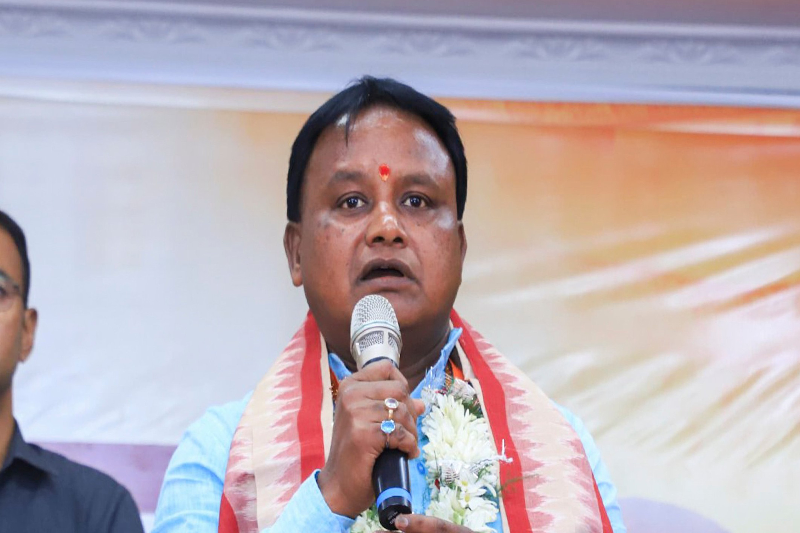
Odisha to Launch 835 Model Primary Schools Under Flagship Education Scheme
In a significant move to transform primary education, the Odisha government has announced the launch of 835 model primary schools in the first phase of its flagship initiative—the Godabarish Mishra Adarsha Prathamik Vidyalaya scheme. The announcement was made following a review meeting chaired by Chief Minister Mohan Charan Majhi in Bhubaneswar.
This ambitious scheme is set to create a network of high-quality primary schools that will serve as feeder institutions to existing high schools throughout the state. It forms a crucial part of the government’s long-term strategy to overhaul the education system from the grassroots level.
Rs 7 Crore Allocated Per School for Modern Infrastructure
Each of the proposed model schools will receive an investment of Rs 7 crore, reflecting the government’s serious commitment to providing national-level education standards within the state's socio-economic context.
To qualify for upgradation under this scheme, schools must meet specific criteria:
- A minimum student strength of 100
- Classes from pre-primary (Shishu Vatika) to Class 8
- At least two acres of available land
These parameters are designed to ensure that only schools with the capacity to grow and support future expansion are chosen for development. The emphasis is not just on quantity but on creating an educational ecosystem that can be sustained and scaled.
One Model School in Each Gram Panchayat Headquarters
Chief Minister Majhi has laid out a clear vision for equitable geographic distribution. He has instructed that at least one model school be set up in the headquarters of every gram panchayat, ensuring that rural and remote areas are not left behind.
This move aims to reduce regional disparities in access to quality education, providing every child—regardless of location—with the opportunity to learn in a modern, well-equipped environment.
Emphasis on Accessibility: Free Transport for Remote Areas
Accessibility remains a key concern for students in interior parts of Odisha. To address this, the Chief Minister has mandated free transportation facilities for children residing in remote and hard-to-reach areas.
This provision is expected to improve attendance, reduce dropouts, and ensure that the benefits of model schools reach students who need them the most. The policy aligns with broader inclusion goals and demonstrates sensitivity to the practical challenges many families face.
Schools Designed for Future Upgradation
While these schools are being developed as primary institutions, the state government is thinking ahead. The Chief Minister has directed that selected schools should be built in a way that allows for future upgradation into high schools.
This forward-looking approach ensures that investments made today can support the educational journey of students beyond Class 8 in the years to come. It also promotes infrastructure continuity, reducing the need for future capital-intensive overhauls.
Focus on Results, Technology & Teacher Recruitment
CM Majhi also stressed the need to enhance academic outcomes through strategic interventions. He urged departmental secretaries and education officials to:
- Adopt modern technology in teaching and administration
- Recruit and train teachers using national best practices
- Implement accountability frameworks to ensure continuous improvement
This directive signals a shift from infrastructure-centric reforms to a performance-oriented education model, integrating technology with pedagogy to drive measurable learning outcomes.
Strengthening Foundational Literacy and Numeracy
One of the key objectives of the scheme is to align early education with the National Education Policy 2020 (NEP 2020). In particular, the focus will be on achieving foundational literacy and numeracy by Class 3, which is considered essential for long-term academic success.
By prioritising these basic skills, the Odisha government aims to ensure that every student attains a minimum competency level in reading and arithmetic, setting a strong base for future learning.
Holistic Education: STEM, Vocational Skills & Life Competencies
In addition to academic excellence, the scheme will also promote holistic student development. The review meeting outlined the inclusion of:
- STEM-based learning (Science, Technology, Engineering, and Math)
- Vocational training for real-world readiness
- Emphasis on creativity, critical thinking, and life skills
This diverse educational approach will help prepare students not just for exams, but for life—equipping them with tools to think independently, solve problems, and contribute meaningfully to society.
Community Involvement and Stakeholder Participation
The success of these model schools will also rely on the active participation of parents, alumni, and local stakeholders. The Chief Minister encouraged stronger community engagement to build a sense of ownership and responsibility toward the schools.
Such involvement is expected to foster better school management, improve accountability, and create an ecosystem where education is a shared priority.
Conclusion
The launch of 835 model primary schools under the Godabarish Mishra Adarsha Prathamik Vidyalaya scheme marks a bold step in redefining Odisha's primary education landscape. With a comprehensive plan that includes infrastructure, access, academic quality, and community involvement, the initiative promises to lay a solid foundation for the state’s educational future.
By merging the ideals of equitable access, modern education, and holistic development, Odisha is setting a precedent for other states to follow.



